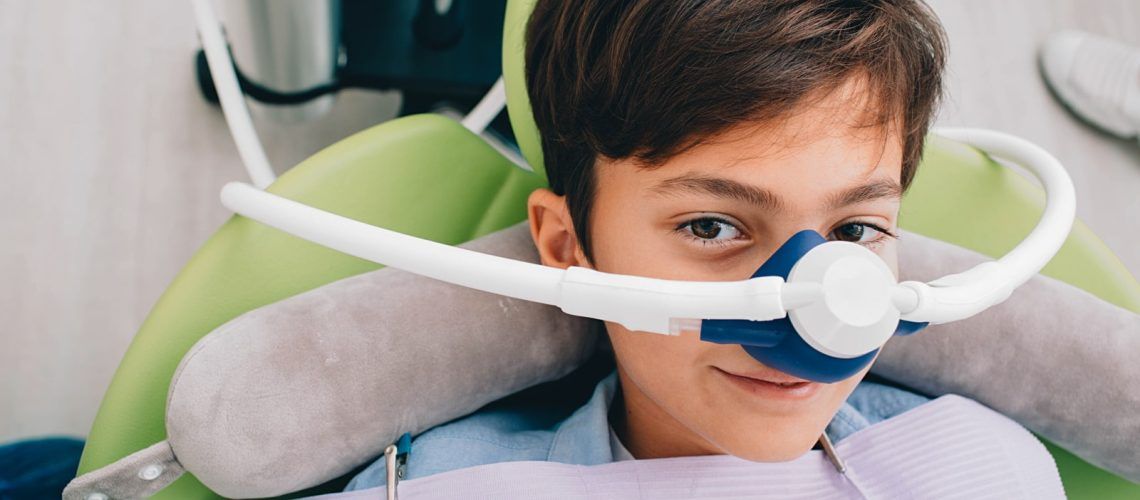Many children find the prospect of going to the dentist to be at least slightly intimidating. There are many reasons why that may feel this way about oral health care. Sometimes they have developed preconceptions by hearing how others talk about visiting the dentist. Maybe they’ve seen something online that has led them to believe dentists are scary. It’s also possible that classmates or siblings have been teasing them and setting them up to be afraid. Whatever the underlying cause may be, the result is dental anxiety. Dental anxiety ranges from mild to paralyzing and is known as dentophobia.
How Nitrous Oxide Can Help Ease Dentophobia
Nitrous Oxide was introduced to the dental industry nearly 200 years ago. Since then, it has continued to be used as a safe and effective form of sedation during dentistry. Numerous advances have been made in delivering the gas, but the sedative required no changes. It remains one of the most effective and trusted forms of mild sedation used in dentistry.
Nitrous oxide is provided to the patient through a specialized mask. This mask makes it possible to control how much gas the patient receives precisely. It can be adjusted at any point during the procedure to the needs of the dentist and patient. When under the effects of nitrous oxide, most patients are capable of communicating with the dentist. They are conscious, relaxed, and almost giddy during the procedure. Some patients may fall asleep under the effects of nitrous oxide simply due to being incredibly relaxed.
When the gas is adjusted, the patient will quickly respond. Reducing the amount of gas delivered will render them more awake and alert. Increasing the amount of gas the patient receives will make them more relaxed. The change between states takes only moments, as patients recover quickly from nitrous oxide sedation. Most patients completely recovered within minutes of removing the gas.
Some patients report a few mild side effects when under the effects of nitrous oxide. These side effects include:
- Nausea
- Headaches
These pass quickly once the gas is no longer being administered. The effectiveness, onset speed, and recovery time continue to make nitrous oxide a popular choice for sedation dentistry. It’s also why it is a common choice for children suffering from dental anxiety. It’s safe to use even when the procedure doesn’t involve any form of pain or discomfort.
Communicate With Your Dentist About Sedation Choices
Dental anxiety can profoundly impact our ability to receive dental health care. We may avoid the prospect of a dental visit when we’re intimidated. While children often don’t have the choice to avoid receiving dental care, it can become problematic when they become adults. Even as children, it’s best to treat your child’s concerns as real. Failing to do so can intensify the effects of dental anxiety as they age. One potential treatment for dental anxiety is mental health care using Cognitive Behavioral Therapy techniques. Most patients who undergo this form of therapy showed significant improvement.


